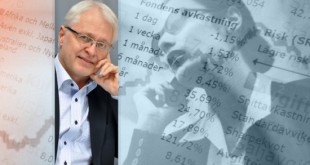Do unrealistic economic models explain real-world phenomena? When applying deductivist thinking to economics, neoclassical economists usually set up “as if” models based on a set of tight axiomatic assumptions from which consistent and precise inferences are made. The beauty of this procedure is of course that if the axiomatic premises are true, the conclusions necessarily follow. The snag is that if the models are to be relevant, we also have to argue that their precision and rigour still...
Read More »Roman Frydman on the ‘rational expectations’ hoax
Roman Frydman on the ‘rational expectations’ hoax Lynn Parramore: It seems obvious that both fundamentals and psychology matter. Why haven’t economists developed an approach to modeling stock-price movements that incorporates both? Roman Frydman: It took a while to realize that the reason is relatively straightforward. Economists have relied on models that assume away unforeseeable change. As different as they are, rational expectations and behavioral-finance models represent the market...
Read More »Models and the poverty of atomistic behavioural assumptions
Models and the poverty of atomistic behavioural assumptions [embedded content]
Read More »Is macroeconomics for real?
Is macroeconomics for real? Empirically, far from isolating a microeconomic core, real-business-cycle models, as with other representative-agent models, use macroeconomic aggregates for their testing and estimation. Thus, to the degree that such models are successful in explaining empirical phenomena, they point to the ontological centrality of macroeconomic and not to microeconomic entities … At the empirical level, even the new classical representative-agent models are fundamentally...
Read More »Just playing games? Count me out!
Just playing games? Count me out! I have spent a considerable part of my life building economic models, and examining the models that other economists have built. I believe that I am making reasonably good use of my talents in an attempt to understand the social world.I have no fellow-feeling with those economic theorists who, off the record at seminars and conferences, admit that they are only playing a game with other theorists. If their models are not intended seriously, I want to say...
Read More »November 13th, 2015 — a date which will live in infamy
November 13th, 2015 — a date which will live in infamy The verdict of history will be harsh.
Read More »Deductivist modeling leading economics astray
Deductivist modeling leading economics astray To achieve explanatory success, a theory should, minimally, satisfy two criteria: it should have determinate implications for behavior, and the implied behavior should be what we actually observe. These are necessary conditions, not sufficient ones. Rational-choice theory often fails on both counts. The theory may be indeterminate, and people may be irrational. In what was perhaps the first sustained criticism of the theory, Keynes emphasized...
Read More »Methodological foundations of heterodox economics
Methodological foundations of heterodox economics [embedded content] [h/t Jan Milch]
Read More »Economic models are getting more and more sophisticated — and totally useless
Economic models are getting more and more sophisticated — and totally useless [embedded content] Those of us in the economics community who are impolite enough to dare question the preferred methods and models applied in mainstream economics, are as a rule met with disapproval. But although people seem to get very agitated and upset by the critique — just read the commentaries on this blog if you don’t believe me — defenders of “received theory” always say that the critique is “nothing...
Read More »Spekulationsbubblor
Spekulationsbubblor får konsekvenser för hela samhället. Men hur skapas de? Priserna på finansmarknaden sätts efter en annan logik än varor i vår vardag, säger professor Lars Pålsson Syll. Man köper tillgångar, inte för att använda dem, utan för att sälja dem vidare. Tulpanmanin i Holland på 1600-talet är den först kända spekulationsbubblan. Då drabbades bara de som handlade med lökar. Men i dagens globaliserade värld påverkas många fler när marknaden kraschar. Lyssna på programmet...
Read More » Heterodox
Heterodox








